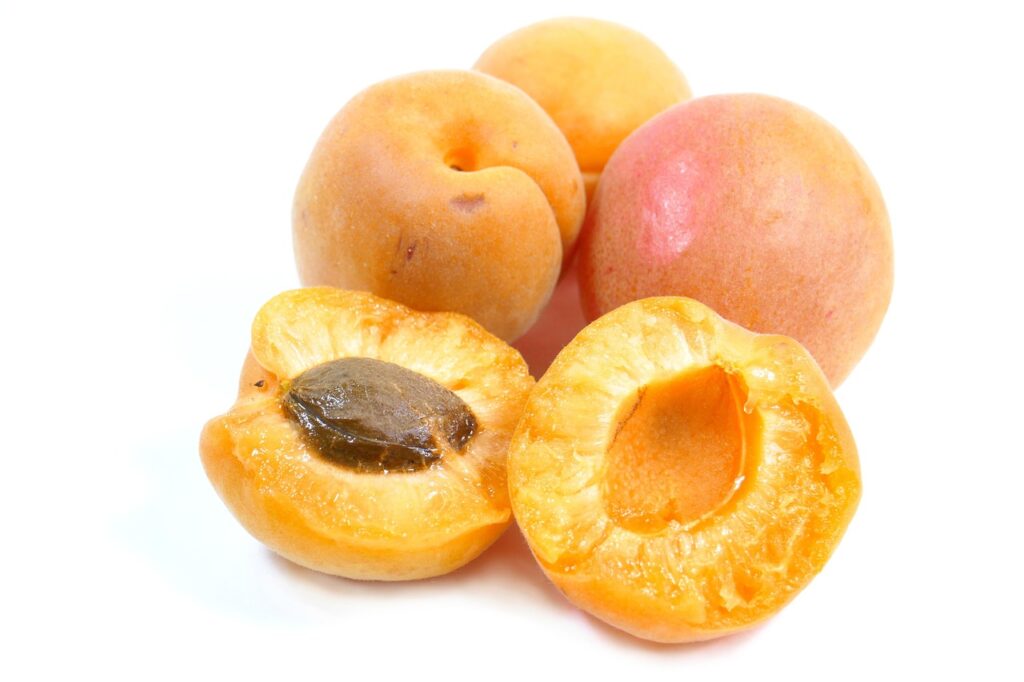Apricot kernels, the seeds found inside the hard pit of apricots, have been a topic of interest for their potential health benefits and culinary uses. Often referred to as “nature’s hidden treasure,” these small seeds are packed with nutrients but also come with some controversy.
In this blog post, we’ll explore the benefits of apricot kernels, how to eat them safely, and what you need to know before adding them to your diet.
What Are Apricot Kernels?
Apricot kernels are the seeds found inside the hard shell of an apricot pit. They resemble almonds in appearance and have a slightly bitter, nutty flavor. These kernels are rich in healthy fats, protein, and a compound called amygdalin, which has sparked both interest and debate in the health community.
Health Benefits of Apricot Kernels
- Rich in Nutrients
Apricot kernels are a good source of healthy fats, including monounsaturated and polyunsaturated fats, which support heart health. They also contain protein, fiber, and essential vitamins and minerals like vitamin E, magnesium, and iron. - Potential Antioxidant Properties
The amygdalin in apricot kernels is believed to have antioxidant properties, which may help combat oxidative stress and reduce inflammation in the body. - May Support Immune Function
Some proponents claim that amygdalin (also known as vitamin B17) can boost immune function, though scientific evidence supporting this is limited. - Skin Health
Apricot kernel oil, derived from the kernels, is often used in skincare products for its moisturizing and nourishing properties. It’s rich in vitamin E and fatty acids, which help promote healthy, glowing skin. - Culinary Versatility
Apricot kernels can be eaten raw, roasted, or ground into flour. They add a unique flavor and texture to dishes, making them a fun ingredient to experiment with in the kitchen.
How to Eat Apricot Kernels Safely
While apricot kernels offer potential benefits, they also contain amygdalin, which can break down into cyanide in the body. Consuming too many apricot kernels can lead to cyanide poisoning, so it’s important to follow safety guidelines:
- Limit Your Intake
The recommended safe limit for apricot kernels is 1-2 kernels per day for adults. Some health authorities suggest even fewer for children. Always start with a small amount to see how your body reacts. - Choose Bitter or Sweet Kernels
Apricot kernels come in two varieties: bitter and sweet. Bitter kernels contain higher levels of amygdalin, while sweet kernels have lower levels. If you’re new to apricot kernels, start with sweet kernels to minimize risk. - Roast or Cook Them
Roasting or cooking apricot kernels can reduce their amygdalin content, making them safer to consume. Simply spread the kernels on a baking sheet and roast at 350°F (175°C) for 10-15 minutes, or until lightly golden. - Grind Them into Flour
Ground apricot kernels can be used as a gluten-free flour alternative in baking. Combine them with other flours like almond or coconut flour for best results. - Use Apricot Kernel Oil
Apricot kernel oil is a safe and versatile way to enjoy the benefits of apricot kernels. Use it in salad dressings, as a cooking oil, or as a moisturizer for your skin.
Creative Ways to Use Apricot Kernels
- Snack on Them
Enjoy 1-2 roasted apricot kernels as a nutrient-packed snack. - Add to Smoothies
Blend a small amount of ground apricot kernels into your favorite smoothie for a nutty flavor and extra nutrients. - Bake with Them
Use ground apricot kernels in gluten-free baking recipes for cookies, muffins, or bread. - Make Homemade Granola
Mix chopped apricot kernels with oats, nuts, seeds, and honey for a crunchy, healthy granola. - Use in Savory Dishes
Sprinkle crushed apricot kernels over salads, yogurt, or roasted vegetables for added texture and flavor.
Potential Risks and Precautions
- Cyanide Content
The amygdalin in apricot kernels can release cyanide when metabolized. Consuming too many kernels can lead to symptoms like dizziness, nausea, and even more severe health issues. Always stick to the recommended daily limit. - Not Suitable for Everyone
Pregnant or breastfeeding women, children, and individuals with certain health conditions should avoid apricot kernels due to the potential risks. - Consult Your Doctor
If you’re considering adding apricot kernels to your diet, especially for medicinal purposes, consult your healthcare provider first.

Apricot kernels are a fascinating and nutrient-dense food with potential health benefits, but they must be consumed with caution due to their amygdalin content. When eaten in moderation and prepared safely, they can be a unique addition to your diet, offering a nutty flavor and a boost of nutrients.
Whether you’re snacking on roasted kernels, baking with ground apricot flour, or drizzling apricot kernel oil over your salad, this superfood can add a new dimension to your meals. Just remember to prioritize safety and enjoy them responsibly!
Have you tried apricot kernels?
Share your experiences and favorite recipes in the comments below!

